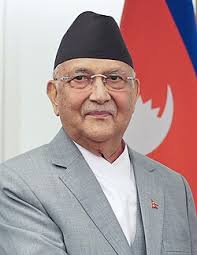
Introduction: The Importance of Political Leadership in Nepal
The political leadership of Nepal, especially the role of the Nepali Prime Minister, is crucial given the country’s diverse landscape and challenges. As a nation that has transitioned from a monarchy to a federal democratic republic, strong leadership is necessary for maintaining stability and promoting development. With geopolitical interests in the region, updates regarding the Nepali Prime Minister are not only relevant for Nepal but also for its neighbors and international stakeholders.
Current Political Landscape
As of October 2023, Pushpa Kamal Dahal, popularly known as Prachanda, serves as the Prime Minister of Nepal. He has been in office since December 26, 2022, after securing a coalition government with the support of key political parties. Prachanda’s leadership is characterized by a focus on economic development and enhancing infrastructure, particularly as Nepal aims to recover from the economic impacts of the COVID-19 pandemic.
Recent Developments
In recent weeks, the Nepali Prime Minister has prioritized post-disaster recovery efforts, focusing on areas affected by natural calamities. Major initiatives include plans for improved disaster management strategies and infrastructure rebuilding. Furthermore, Prachanda’s administration has initiated discussions around foreign investment to bolster the economy and create jobs. He recently visited India, where he engaged in talks to enhance diplomatic and trade relations, emphasizing the importance of regional cooperation.
Challenges Ahead
Despite these efforts, Prachanda faces numerous challenges. Political instability, party dissent, and socio-economic inequalities remain significant issues that threaten his government’s efficacy. Observers note that successful governance will depend on forging consensus among diverse political factions and addressing public discontent regarding unemployment and corruption.
Conclusion: Significance for the Future
The role of the Nepali Prime Minister is pivotal in shaping the country’s future, especially during these transformative times. As Nepal navigates both domestic challenges and international relations, the performance of Prime Minister Prachanda will be closely watched. His administration’s ability to foster unity, stimulate economic growth, and address the concerns of the Nepali populace will determine not just his political future, but also the socio-economic trajectory of Nepal. For citizens and international stakeholders alike, the developments around the Nepali Prime Minister are essential in understanding the future of governance and democracy in Nepal.



